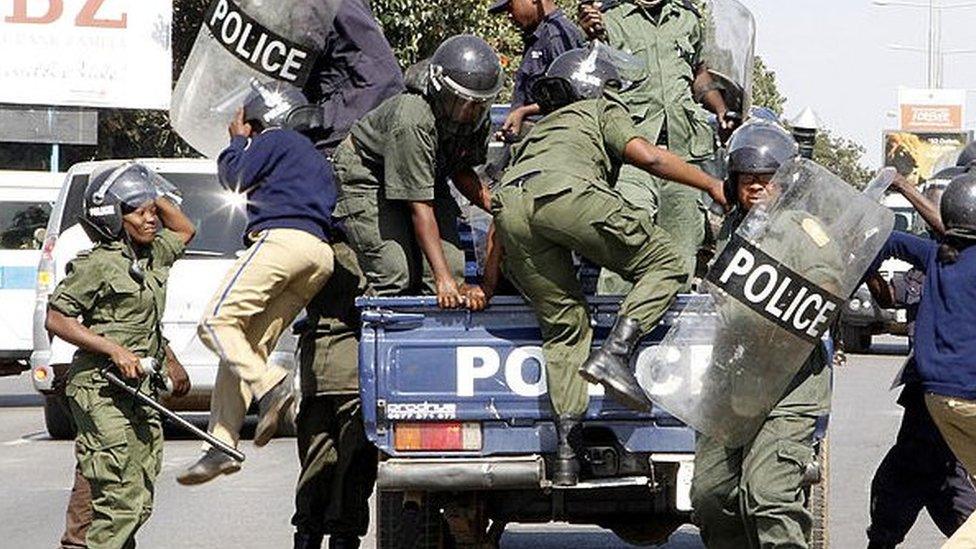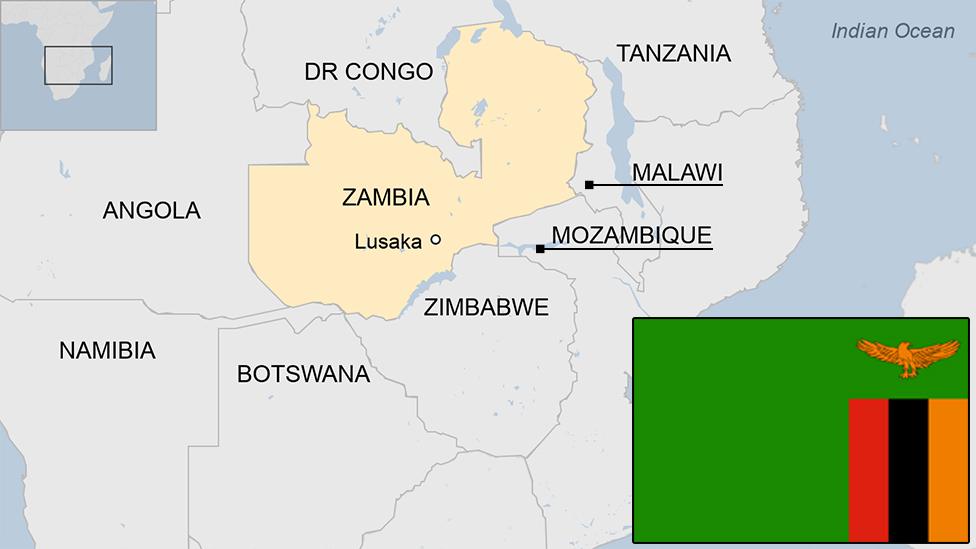Zambia's new Chinese police officers removed after outcry
- Published

The Chinese police officers were commissioned on Monday
Zambia's police force has scrapped plans to employ eight Chinese nationals barely 24 hours after it unveiled the scheme, following a public outcry.
The new reservists were commissioned in the capital, Lusaka, on Monday.
But the decision prompted widespread anger, especially in light of a ruling taken earlier this year that bans police officers from marrying foreigners for "security reasons".
Not even Zambians with dual-nationality are allowed to join the police.
Dickson Jere, a lawyer and former presidential spokesman, said the constitution was clear on the matter.
He told the BBC's Focus on Africa radio programme that the entire incident was an "insult" - to others in the police, but also other Zambians.
"When we see a uniform of the police, it signifies our identity. It signifies our sovereignty," Mr Jere said. "How would we be feeling to see a police officer and be saluting a Chinese [national] in our own country?"
The appointment of the Chinese reservists had left many other people scratching their heads particularly as the government had previously removed other nationals from the security services, journalist Kennedy Gondwe reports from Lusaka.
That move had been prompted because there was a feeling that foreigners were infiltrating, he says
Suspicions over the recent recruitment were bolstered by distrust towards the Chinese community in Zambia, which was estimated to number about 20,000 in 2015, according to the privately owned Lusaka Times, external.
But the part-time officers are not thought to be have been going to perform any special role liaising with Zambia's Chinese community.
Police spokeswoman Esther Mwata-Katongo had said they would just assist regular officers.
"We had Indians who were police reserves and people were OK with it. Why should the Chinese be discriminated on race?" the Lusaka Times quoted her as saying.
But the police have since backed down from their position - with the caveat the officers' appointment broke no laws.
- Published23 January 2017

- Published24 March 2023
